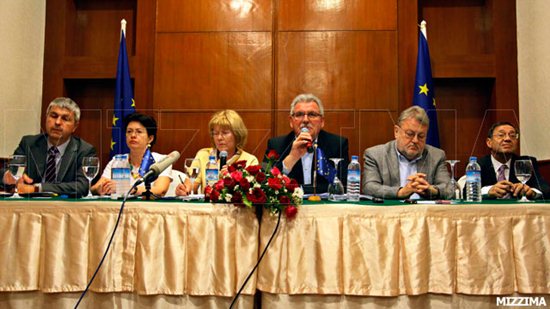A European Union delegation to Burma says some sanctions could be lifted on Burma following a free and fair April 1 by-election, and the key to economic development lies in rural areas.

Werner Langen, the chairman of the EU Economic and Monetary Affairs Committee, said Burma’s recent moves toward demoracy are “very impressive,” following a whirlwind tour of meetings with top government officials.
“The decision to lift sanctions would be dependent on the way by-elections are held in April,” he said.
“We are hoping these are the first step toward a more democratic Myanmar. A free and fair election has been promised,” he said. “This is very important, but the most important development would be to improve the life of the people in Myanmar.”
He noted that more than 50 percent of population lives in rural areas, “and they need infrastructure, they need water, they need technology, they need Investment.”
Barbara Lochbihler, a member of the E.U. Human Rights Committee, said it is important for the Burmese government to show that it can return the soldiers to the barracks and end decades of serious human rights abuses and fighting in ethnic areas across the country. The human rights issues facing Burma’s government will play a large role in whether or not sanctions are lifted, she said. She said it was an “ongoing process” which needs much more attention and development.
In rural areas, she said, many children are malnourished, there is an unacceptable drop out rate in schools, and such issues need to be addressed urgently.
“From a human rights point of view, it is too early to say when the sanctions should be lifted, but the European Union is very committed and the parliamentarians are very committed to support all the reforms,” she said.
She said the E.U. delegation got the impression that Burmese members of Parliament take their jobs very seriously and want to represent their constituencies.
Robert Goebbels, the vice chairman of E.U. Industry, Research and Energy Committee, said that the delegation members were very impressed by Aung San Suu Kyi in their meeting.
“She said that the most important thing for the moment for your country is hope.” Without goodwill on the part of all people, she said, “There will be no hope.”



